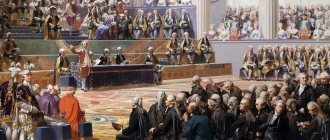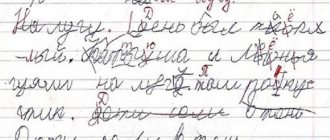The Word is a great ruler who has a completely invisible body, but is capable of doing the most wonderful things. With the help of the right word, you can rid a person of fear or bring about sadness. In addition, such a means of expression helps convey important information to the majority of people. This was used by various minds of the ancient world, who were called orators. In our article we will talk about the most famous ancient Greek speakers and their works that have survived to our times.
Who is a speaker?
Before we begin to familiarize ourselves with the main material, let's first understand who the speaker is and what he does. If you turn to the dictionary of the modern Russian language, you can find several definitions of this term, each of which carries a certain amount of truth. For example, speakers today are people who study the art of eloquence at a professional level.
Also, many modern writers use this term in their works, presenting to the reader characters who have a certain gift of speech. In short, a speaker is a person who delivers a specific speech. In the following sections you will find the names of ancient Greek speakers and their works, which are also used by the modern generation.
Socrates and Plato
Perhaps the two most famous orators of Ancient Greece, whose works and statements can still be found today. According to Plato, who considered himself more of a scientist than an orator, the art of eloquence is based on knowledge of the truth, and not on the correct construction of sentences and the use of phraseological units. Only if a person develops comprehensively will he be able to understand the nature of human souls and begin to convey the word to them.
As for Socrates, the scientist’s most famous work is considered to be a dialogue called “Phaedrus,” in which the famous philosopher discussed the meaning of life with a young man named Fedor. The author adhered to the theory that before you begin to convey your opinion to your interlocutor, it is necessary to study it in detail, like any subject. After this, you can find the right levers, by pressing which you will inspire trust and respect in your interlocutor.
The most famous speakers of our time
The great orators in the history of mankind of all times were famous for the fact that they never stopped improving themselves for a moment and were faithful to speech activity all their lives.
Abraham Lincoln
Lincoln was no exception, although he attended school for one year. He read a lot, engaged in self-development and could easily discuss with the most educated people of his century. As a speaker, at first he was timid and constrained, but after a couple of minutes in public he relaxed, spoke confidently and from the heart. He wrote his speeches in everyday affairs on any piece of paper, put them in a hat and wore them until there was time to sort everything out and prepare material for the report.
Winston Churchill
The outstanding politician Winston Churchill said that the most significant talent is oratory. The British politician, like some orators of antiquity, suffered from a speech impediment. But his lisp did not stop him from becoming a heart-tugging broadcaster. Churchill was not afraid to show emotions in his speech, he used short and simple words, which brought himself closer to the people. He understood the power of humor and used it wisely in his speeches, creating a good mood for those around him.
Adolf Gitler
Not all famous speakers from ancient times to the present day were “positive” characters in history. Adolf Hitler must be recognized as one of the masters of skillful speech. He had an excellent command of German dialects and seemed like a fellow countryman to all the peoples of Germany. Willpower and a piercing gaze attracted the listener to Hitler and forced him to blindly listen to ideas. The Fuhrer studied psychological persuasion and knew the correct postures and gestures that made the performance believable. He began his speech calmly and detachedly, gradually increasing the pace, and by the end he was already clearly expressing emotions and using acting. Hitler became one of those who devoted himself entirely to a monologue, spending a lot of energy and emotions.
Vladimir Lenin
Vladimir Ilyich Lenin is a man who spoke the same language with the people, our compatriot and another master of rhetoric, who can safely be considered one of the great orators of the 20th century. Lenin did not propose ideas in which he himself did not believe. Charisma and confidence in the correctness of one’s thoughts were found not only on stage, but also in everyday life. He spoke with energy and confidence, interacted with the crowd and received “feedback” from them every time. He used simple words that were accessible to the people, and was on an equal footing with them. However, the desire to express everything that was in his heart made his speech chaotic and overly emotional. He changed intonations and moods several times during the performance.
Steve Jobs
There are still great speakers today. Steve Jobs became an example of the fact that public speaking is also useful in business. Jobs is popular not only as the founder of one of the largest companies of the 21st century, but also as a successful presentation presenter. He mastered rhetoric and competent presentation of the product. Jobs convinced hundreds of people of the need for a brand and believed that confident and clear speech was the key to sales success. He deliberately left several questions unanswered in his speech in order to begin a dialogue with the audience. Steve Jobs walked around the stage, joked and anticipated questions from the audience. Laconism and simplicity were visible in all the affairs of this man.
Vladimir Putin
One cannot help but include the current president of our country, V.V. Putin, among the great orators of Russia, whose persuasive manner is impossible to doubt. The manner of his speech is noticeably different from previous speakers, because he speaks with restraint, balance and consistency. Gestures smoothly and measuredly, stands calmly in place. It is also typical for him to joke in a manner familiar to his mentality. Ironic answers sometimes live a separate life from the famous politician.
All masters of words are different, each had and still has an individual storytelling style, conversation tactics and acting skills. Some coped with the difficulties of speech, others put it at the forefront. We all have one thing in common – perseverance and hard work. Many years of work on oneself, developing rhetoric skills, developing charisma.
Not only politicians and journalists use oratory in their work.
It helps businessmen, tour guides, teachers, coaches, diplomats, etc. in their work. Rhetoric courses from the Benefis theater studio have various directions that are designed to meet the specific needs of students. If your goal is to gain basic knowledge in this area and learn to communicate effectively with friends, peers and colleagues, sign up for a standard course. If your goal is to charm a wide audience with your charisma, winning a storm of applause, sign up for a course with an acting focus. If you want to not only speak effectively, but also learn how to write strong texts, sign up for a course in classical rhetoric. Sign up for a trial lesson
Aristotle's rhetoric
One of the most famous ancient Greek speakers is Aristotle. His great achievements were enshrined in the Encyclopedia of Antiquity, dated 384 BC. This work consists of three books:
- The first one talks about rhetoric as one of the most popular sciences. It also highlights three types of speeches: judicial, epideictic and deliberative and their purpose.
- The second book talks about human morals and passions, which can be used as evidence to the interlocutor. That is, the speaker must influence human emotions by expressing feelings through speech.
- The third book is devoted to various problems of stylistics in the construction of speech. It talks about ways to express your thoughts and construct sentences correctly.
It is also worth noting that Aristotle’s rhetoric does not only affect oratory. It can also find ways to influence and manipulate a person using speech, evidence and conclusions.
Gorgias
The list of ancient Greek orators also includes Gorgias of Leontina, who made an invaluable contribution to the development of oratory and gained recognition among many people in 485 BC. An interesting fact is that Gorgias is considered one of the first orators who taught young men from rich families to think logically and speak beautifully. The “wisdom specialist” focused primarily on the issue of style.
It was he who introduced into speech such a concept as an oxymoron - a combination of concepts that are opposite in meaning. Gorgias's contemporaries called themselves sophists and continue to develop the art of eloquence, based on the teachings of the orator, to this day. Unfortunately, no documents or records of Gorgias have survived to this day, so all that remains is to adhere to various theories and hypotheses about exactly what sciences the ancient orator studied.
Rhetoric
It is noteworthy that the insult inflicted on Demosthenes by his guardians did not harden the heart of the young man, but instilled in the future orator a keen sense of “legitimacy” - this is how Demosthenes called justice, which he considered the most important virtue. To achieve this legitimacy in relation to the offenders, the young man gradually began to practice oratory.
Demosthenes practicing oratory
In addition, barely reaching his 18th birthday, the young man hired the then famous orator Isaeus to teach him the intricacies of Attic law and eloquence, so necessary in court cases.
Thus, the process of litigation with failed guardians turned out to be the best school of rhetoric for Demosthenes. The young man's life, unlike the days of his peers, was filled with hard work. Demosthenes developed speech, the gift of persuasion and strengthened his faith in his own strength.
Orator Demosthenes
An additional difficulty for the young man was a congenital speech defect: Demosthenes stuttered (according to other sources, he burbled). But he managed to overcome this obstacle: every day the young man practiced making speeches with pebbles in his mouth and thus got rid of the deficiency.
Soon Demosthenes became so skilled in oratory and knowledge of the laws that people began to turn to him with requests to act as a lawyer. Demosthenes began to help others solve certain problems, using his own eloquence.
Demosthenes by the sea
After some time, Demosthenes began to be revered as the best rhetorician. The speaker himself will later write that the main weapons of a skilled speaker are not clear pronunciation, competent speech and convincing arguments. Each speaker, according to Demosthenes, must first of all have nobility and morality, only then his power will be comparable in strength to the power of an armed army.
Demosthenes followed his own principles unswervingly: the speaker did not strive for personal gain, and also was not afraid of condemnation or displeasure from those in power. Demosthenes expressed what he considered fair, striving for “legality” in every detail.
Speeches of Demosthenes
The speaker’s life was not without its ill-wishers. A certain Midias, a wealthy man and a friend of Demosthenes’ dishonest guardians, constantly tried to interfere with the speaker, plotting small and large dirty tricks. Media insulted the speaker, denigrated Demosthenes in the eyes of the people, and even bribed the judges. It got to the point that Demosthenes’ opponent ruined the orator’s festive clothes, prepared for a solemn speech.
But even such insults and attacks did not force Demosthenes to abandon his own principles: the speaker did not answer the offender himself, but demanded a legal trial in court.
Demosthenes
An ancient Greek orator and part-time teacher of eloquence, who studied with Socrates and Plato for several years. Demosthenes’ speeches are also called “mirrors of character,” since the speaker was able to almost accurately recognize what was hidden in the soul of his interlocutor and choose the right words that he would like to hear. Demosthenes himself did not consider himself a rhetorician and did not like to decorate his words with invented expressions that an ordinary person could not perceive.
People loved the speaker for his fairly simple arguments and examples, which were imbued with wisdom and nobility. Also quite an interesting fact is that Demosthenes had a rather weak voice and short breathing, so there was always complete silence during his lectures so that the students could hear the teacher. By the way, perhaps you found the question in scanwords: “Ancient Greek speaker who stuttered - 8 letters?” If so, then Demosthenes was the answer.
Later life of Demosthenes
It is important to note that by the time Demosthenes became an adult, practically nothing remained of the fortune left by his father. His guardians allowed him to take only a house full of slaves, and left the lion's share of the property and money for their loved ones. Demosthenes made attempts to return what was owed to him, but this did not yield any results. As a result, he decided to obtain the stolen property through the courts. But in order to be able to win in court, it was necessary, firstly, to know the laws of Athens perfectly, and secondly, to be able to speak brilliantly.
And the first independent step for Demosthenes was precisely this trial, where he made speeches addressed to unreliable guardians. This process continued for five years, during which the thieves tried to evade responsibility by destroying the will written by Demosthenes the Father, as well as a number of other significant documents. But, despite all attempts to avoid punishment, the guardians were convicted. And, despite the fact that the young master of eloquence was not able to return everything that was owed to him, in the process of a protracted trial he was able to strengthen his character and become a persistent and persistent person.
By the age of thirty, Demosthenes was already taking part in state affairs, and directed all the power of his oratorical potential against the scourge of all the inhabitants of Hellas - the Macedonian ruler Philip. Demosthenes managed to create an anti-Macedonian coalition of Greek city-states, and also twice received the status of first strategist and was the head of state. The people's assembly even awarded the honorary Athenian a wreath, which was a great honor.
Over the following years, Demosthenes made speeches in the national assembly, with which he awakened true patriotism in his fellow citizens (the fiery speeches of the speaker against Philip, by the way, were called “Philippics”). But the end of Demosthenes’ life was not rosy - he was accused of false denunciation, for which reason he was sentenced to death. As a result, Demosthenes was forced to hide in the temple of Poseidon, located on the island of Kalavria, and after the Macedonians seized power in Greece, he poisoned himself.
Pericles
The speech of the ancient Greek orator is a real performance that shows the wisdom and enlightenment of one person. However, such a spectacle becomes much more interesting if the speaker is also a political figure. Pericles was such a person. Constant communication with different people could not but affect the character and knowledge of the master of eloquence.
The flourishing of Athenian democracy is associated with the name of Pericles, so we can say without a twinge of conscience that it was this man who made an invaluable contribution to the development of the world that we know today. Thanks to Pericles and his students, Ancient Greece at one time achieved an unprecedented economic breakthrough and cultural development. It was this speaker who ordered the construction of famous buildings to begin: the Propylaea, the Parthenon, and so on.
Interesting facts about Demosthenes
Demosthenes was born in Ancient Greece, in the city of Athens. Despite the fact that at that time the skill of eloquence was known to the Egyptians, Assyrians, and Indians, Hellas is the birthplace of oratory.
The whole life of Ancient Greece was saturated with the speeches of orators: generals gave incendiary speeches to the troops, politicians spoke at council meetings and mass gatherings, citizens who were guilty of something, through their ability to speak, defended their rights in court, and any person, wishing so, could perform at a friendly meeting, funeral or celebration. And by and large, the ability to express oneself eloquently for every person was by no means a whim, but a vital necessity.
There were quite a few genres of public speeches, but the deliberative genre of speech was the most popular and significant; in other words, political eloquence was especially valued. If the speaker achieved success in his business, the prospects of obtaining a good position in the government apparatus and even the opportunity to go as ambassador to another country opened up before him. And there is nothing strange in the fact that Demosthenes dreamed of becoming an orator since childhood.
Demosthenes’ father (by the way, his namesake) was a representative of the respected bourgeois class and the owner of two workshops, where several dozen slaves made furniture and weapons. When Demosthenes was seven years old, his father died, leaving his sister and himself a substantial fortune. But the people who were entrusted with the responsibility of raising young orphans (Demosthenes’ sister was only five years old at that time) were not only selfish and greedy in nature, but did not take any part in their upbringing, and, accordingly, there could be no payment for teachers out of the question. So, Demosthenes was a weak child and lagging behind in physical development, and also seriously stuttered and burbled.
Even in adolescence, Demosthenes persuaded his teacher to take him to a court hearing at which one of the famous orators spoke. The applause and delight of the audience, captivated by the speaker, then made an indelible impression on Demosthenes. This, in fact, served as the motivation for him to study public speaking on his own.
Considering that there were more than enough people teaching eloquence in Athens at that time, Demosthenes was able to find a mentor. For four years he was a student of Isei, a man who had the status of one of the best teachers in oratory. It was from Isaeus that Demosthenes subsequently adopted the manner of asking rhetorical questions, the strict logic of proof, meaningfulness, conciseness and simplicity of style.
During his studies, Demosthenes became properly acquainted with the works of eminent philosophers and historians such as Plato and Thucydides. Demosthenes rewrote Thucydides’ “History” with his own hand eight times, which is why he managed to learn it by heart.
Subsequently, Demosthenes, like many other speakers of that era, including Isaeus, initially began to write judicial speeches for other speakers, and only after successfully completing this task did he move on to his public speeches. But this is where the story gets even more interesting.
Themistocles
Many believe that Themistocles does not belong to the ancient Greek orators, since he was a commander and statesman, but such arguments have little weight. Even in early childhood, the aspiring speaker, according to his peers, had a tendency to participate in social activities. Even during leisure hours, he enjoyed various educational activities and improved in everything.
Therefore, his teachers constantly said that nothing mediocre would ever come out of the boy, but something great. However, the young man never relied on his natural talents and improved his skills. Over time, Themistocles became a great and renowned orator who, in addition to eloquence, also explored various fields of science, such as philosophy. Most of his works were lost as Themistocles assumed leadership positions in 493 BC.
Isei
One of the ten most famous ancient Greek speakers is Iseus from Chalkis, who spent almost his entire life improving the art of eloquence. This person is also the author of several fateful speeches that were written specifically to order for legal proceedings. Today, feature films are made based on these very speeches, and actors build their fame on them.
Iseus was the mentor of Demosthenes, and he himself studied with the famous orator Isocrates. Today you can find 11 court speeches, which are extremely popular because they present everything in a very accessible language. Isei is considered much wiser than his mentor, but whether this is actually so is not for us to judge. Be that as it may, his speeches became a source of inspiration for many people who have now gained popularity.
Isocrates
A famous Athenian orator who enjoyed enormous popularity in Ancient Greece due to his famous judicial and political speeches. Isocrates came from a wealthy family, so his parents never had any problems with training young talent. In early childhood, the boy was interested in logic, philosophy, law and eloquence. All these sciences were very useful to him in life, since already at a young age Isocrates practiced his knowledge in public.
The speaker was always confident that the presentation of the speech should be as convincing as possible. To do this, he used a variety of arguments and compelling arguments in favor of his own opinion. As a master of eloquence, Isocrates is still considered one of the most authoritative figures in the history of this world. The popularity of this personality is evidenced by a huge number of excerpts from his speeches, which can be found without much difficulty on the Internet.
Chapter VI. Orators of Antiquity
Not strength, but intelligence!
The great orators of the ancient era are among those lucky few whose art has survived centuries and continues to delight humanity to this day. Orators were the main characters in trials and discussions in public assemblies, laying the foundation for the institution of the legal profession, and such sciences as jurisprudence and political science.
Pythagoras brought oratory to Ancient Greece, having learned the basics of social technologies, in modern terms, from Babylonian and Egyptian priests. Pythagoras introduced the fashion to talk about political topics and, in essence, marked the beginning of the emergence of civil society. Outstanding orators of Ancient Greece, such as Pericles, Isocrates and, of course, Demosthenes enjoyed enormous influence and authority, comparable to the influence of priests and oracles.
Cicero
It is generally accepted that the greatest orator of Greece was the incomparable Demosthenes. He was the complete opposite of the sophists who proliferated in incredible numbers, paid teachers of eloquence, capable of convincing anyone of anything. The most prominent sophists were Protagoras, Gorgias and Critias. Characterizing the methodology of Protagoras, Diogenes Laertius wrote that “He (Protagoras) was the first to declare that every subject can be said in two ways and in the opposite way... he did not care about thought, he argued about words, and the ubiquitous current tribe of debaters originates from him.” Karl Marx noted that in the era of Pericles, that is, in the “golden age” of Athens, sophists, art and rhetoric supplanted even religion.
Demosthenes was an adherent of the school of Pericles, considered the great ruler of Athens his teacher and sought to express his thoughts as clearly and clearly as possible. The Athenians at that time were extremely spoiled and demanded from rhetoricians not only the content of their speeches, but also beautiful and effective facial expressions and gestures. Even the position of the fingers and one or another bend of the body mattered, as in the traditional Japanese theater "Kabuki".
Demosthenes
Demosthenes had a quiet, weak voice, was extremely tongue-tied, his shoulder twitched and, it seemed, there was no chance of becoming an orator.
But perseverance and willpower overcame natural shortcomings. Demosthenes went out to the seashore, picked up sea pebbles in his mouth and practiced pronouncing words clearly and loudly. The sound of the waves replaced the cries of the crowd; having climbed steep cliffs, he learned to overcome excitement and fear. He practiced facial expressions in front of a mirror, and a sword suspended from the ceiling stabbed him every time he jerked his shoulder. His first attempts to perform were not successful, but he did not give up and achieved recognition. He first attracted attention in the process against his guardians, who deceived and robbed him during his childhood. Demosthenes won the case, although he did not return his entire fortune.
Using the example of Demosthenes, one can see that the figure of the orator combined the hypostases of a lawyer and a politician, and often a people’s leader.
Demosthenes began his political activity during the rise of the star of the Macedonian king Philip, the father of Alexander the Great. Demosthenes pointed out to the Athenians Philip's expansionist plans and urged them to create a strong army and fleet. These speeches were called "philippics" and brought Demosthenes a well-deserved fame that survived centuries.
Demosthenes never stopped fighting against Philip and then Alexander. He was awarded a golden crown many times. Having conquered Greece, Alexander first demanded that Demosthenes be executed, but then gave in to the requests of the Greeks and spared him. After the death of the great conqueror, Antipater, Alexander’s heir, sent a detachment of hired killers, “man hunters,” to Demosthenes, who had fled into exile. Demosthenes escaped from the hands of the ancient “killers” and took poison, triumphing over the tyrants even with his death.
On the tomb of Demosthenes the grateful Athenians inscribed verses:
“If you had such power, Demosthenes, as intelligence, Macedonian Ares would not have been able to take power in Hellas.”
The fame of a great orator and skillful politician is rightfully shared with Demosthenes by the Roman Chrysostom Cicero.
His indictment of the conspirator Lucius Sergius Catiline is still impressive today.
Here is the beginning of the first speech:
“Oh, times! Oh, morals! The Senate understands all this, the consul sees it, and this man is still alive. Is he just alive? No, he even comes to the Senate, participates in the discussion of state affairs, outlines and points out with his gaze those of us who should be killed, and we, brave men, imagine that we are fulfilling our duty to the state, evading its fury and dodging its weapons. You should have been executed, Catiline, long ago, by order of the consul, to turn the disastrous blow against you yourself, which you have been preparing against all of us for a long time.”
No less famous is the second Catilinaria, full of sarcasm and self-irony:
“This time, Quirites, Lucius Catiline, maddened in his crime, breathing villainy, wickedly plotting the destruction of his fatherland, threatening you and this city with sword and flame, we have finally expelled from Rome or, if you like, released, or, perhaps, upon his voluntary departure, he was given a parting word. He left, withdrew, ran, escaped. This degenerate, this monster will no longer be inside the city walls preparing the death of these very walls. And we undoubtedly defeated this leader of the internecine war. This dagger will no longer threaten our chest; neither in the field, nor in the forum, nor in the curia, nor, finally, in our own home will we tremble in fear. He was knocked out of position by being removed from Rome. Now no one will stop us from waging war against the enemy according to all the rules. Without any doubt, we have already destroyed him and won a brilliant victory over him, forcing him to move from secret intrigues to open robbery. And the fact that he did not draw his bloody sword, as he wanted, the fact that he left, and we remained alive, the fact that we snatched the weapon from his hands, that the citizens remained unharmed, and the city intact - tell me how much I should he is killed and dejected by all this. Now he lies defeated, quirites, and feels defeated and thrown away and, of course, every now and then turns around, casting glances at this city, torn, to his regret, from his mouth; and Rome, as I believe, rejoices that it has cast out and cast out this destruction.”
Cicero's first speech, “In Defense of Quinctius,” was devoted to the return of illegally seized property. Cicero won confidently.
His greatest triumph was brought to him by the defense of a certain Roscius, accused of parricide. The speech in defense of Russia was structured according to all the laws of the Greek art of “etopeia”, that is, it included dialogues, direct speech on behalf of the accused, exhortations to the judges, and complaints about one’s inexperience and youth.
Here is a short excerpt from this wonderful speech
“Sextus Roscius killed his father. - “What kind of person is he? A spoiled youth trained by scoundrels?” - “Yes, he is over forty years old.” “Then, of course, he was prompted to commit this crime by extravagance, huge debts and uncontrollable passions.” Erutius acquitted him of the charge of extravagance, saying that he had hardly attended even one feast. He never had any debts. As for passions, what passions can a person have who, as the accuser himself stated, has always lived in the countryside, engaged in agriculture? After all, such a life is very far from passions and teaches a sense of duty.”
Cicero appealed to the judges demanding that the real murderers be punished:
“If you do not show in this court case what your views are, then greed, crime and insolence can reach the point where murders will take place not only secretly, but even here in the forum, at your feet, judges, right between the benches.”
After this process, Cicero gained nationwide popularity, which he often abused greatly, which ultimately led to his death. He practically repeated the fate of Demosthenes.
Cicero brilliantly conducted the trial against the influential corrupt official Guy Verres, who was sentenced to a huge fine and exile. He then successfully defended the interests of his friend and patron Gnaeus Pompey the Great, ensuring that the latter was elected commander and given extraordinary powers in the war with Mithridates.
Recognizing Cicero's great merits, the Romans elected him consul. It was at this time that he made his famous speeches against the conspirator Catiline.
Cicero was constantly and uncontrollably engaged in self-praise and won himself a lot of ill-wishers and open enemies.
After the death of Julius Caesar, Cicero decided that it was time to restore the Roman Republic and came out with the Philippics against Mark Antony, one of the members of the ruling triumvirate. Cicero called his speeches phillipics in honor of the famous speeches of Demosthenes, the defender of Greek freedoms. On the part of Cicero, this was an act of the greatest courage; he was well aware that he was risking his life. Octavian Augustus, who initially promised support, suddenly betrayed Cicero and sent a squad of assassins after him.
When Cicero noticed the pursuit, he ordered the slaves carrying him to place the palanquin on the ground and put his head under the centurion's sword.
With the death of Cicero, the golden age of Roman democracy ended.
Most of the works of the great orator and lawyer, as well as the proverbial aphorisms, have reached us, with one of which we will finish the story about the great orators of antiquity:
“Living means thinking!”
Vladimir PROKHVATILOV
Socrates
The great ancient Greek philosopher, who also became the founder of dialectics. We already mentioned him in the second section of our article, but such an authoritative personality deserves special attention, and not comparison with other famous speakers. Socrates expounded his teachings mainly among his students, who were Plato and Xenophon. Most of all he loved philosophy, but oratory was given to him with amazing ease. By the age of twenty, he had acquired such wisdom that many elders could envy. For all subsequent eras, this person became the embodiment of the ideal of man.
The speaker compared his teaching methods to “the art of an old grandmother.” That is, he asked the students a series of questions, to which a critical attitude was expected on the part of the teacher. After the answers, he asked a few more additional questions, and so on until the student was in a hopeless situation. Thus, Plato learned to answer the most difficult questions, and Socrates gained his fame. It is also worth noting that this speaker did not write down his thoughts, but preferred to keep everything in his mind, so today you can find relatively little information about the activities of this sage.
Demosthenes' correction of his speech
Demosthenes' debut suffered a complete collapse - the audience laughed at him, constantly drove him off the stage and never allowed the newly minted speaker to finish. This is explained quite logically: Demosthenes spoke barely audibly, “chewed” words, lisped and stuttered. And the non-verbal side of the speech left much to be desired - every now and then the speaker’s shoulder twitched, and he himself behaved painfully funny in public. But Demosthenes was persistent and spoke for the second time at a public meeting, but even here a fiasco awaited him, after which the frustrated speaker, lost in spirit, went home.
Then, according to legend, Demosthenes decided to start working on himself and resume performing at the suggestion of his friend, who was a famous Athenian actor. Demosthenes told his friend about his failures and the sorrows associated with them, saying that people did not value him and did not understand his profundity at all. After listening to him, the actor asked his friend to read something from Sophocles or Euripides, which he did.
At the end of the speech, the actor repeated the same passage, but so expressively and well that Demosthenes for a moment thought that he was hearing completely unfamiliar verses. So he realized that expressive speech has beauty and makes one want to listen to the speaker, and he decided to use any conceivable and inconceivable means to get rid of his speech deficiencies.
A little later, Demosthenes retired into seclusion, and so as not to want to break the promise he had made to himself, he shaved his head by half. He decided to exercise every day for several hours until the hair on his head grew back. One of his exercises was to put small pebbles in his mouth and try to speak clearly and clearly. And in order to develop breathing and vocal strength, he read poetry loudly while climbing the mountain. He also walked along the seashore and spoke so loudly that his voice drowned out the sound of the surf.
To get rid of burr, Demosthenes bought a puppy, and then listened to its growl and repeated the sounds made by the dog. The speaker decided to overcome the twitching shoulder with a truly unusual method - using a sharp sword. The weapon was suspended from the ceiling, and Demosthenes rehearsed, positioning himself so that the tip of the sword touched his shoulder every time it twitched. In this way he was able to gain control over his body. As for gestures and mastery of space, Demosthenes, in order to remain free during performances, took lessons from his actor friend.
All this allowed Demosthenes to become a true professional in his field.











